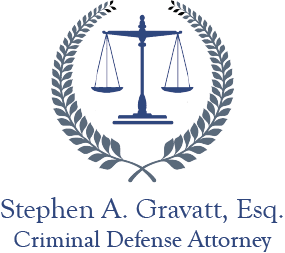OBSTRUCTION OF THE ADMINISTRATION OF LAW OR OTHER GOVERNMENTAL FUNCTION—2C:29-1
If you have been charged with violation of 2C:29-1, you have exposure if convicted, to possible jail up to 180 days and fine up to $1,000.00, and a criminal record, if charged as a disorderly persons offense and jail up to 18 months, criminal record, fines up to $10,000.00, if charged as a 4th degree crime /felony. I have been practicing criminal law for 26 plus years and have successfully handled many obstruction cases, saving my clients from conviction, jail time, criminal record, jail time. Please contact me at (732)-337-7922 for an evaluation of your circumstance and vigorous and competent representation.
ILLUSTRATIVE EXAMPLE OF WHAT CONDUCT CONSTITUTES THE OFFENSE:
You are in your house late one evening when you hear frantic knocking at your front door. Unbeknownst to you, an anonymous caller has called the police and reported that your house is being used by a terrorist cell as a storage facility for explosives. As you open the door you determine that there are a number of law enforcement officers demanding entry into your house. The officer(s) express an urgent need to enter and conduct a search. In a knee jerk reaction, you slam the door shut preventing entry into your house. You think to yourself “It’s my property, I can lawfully refuse to allow entry on it”. You know that you are a law biding citizen—you have not engaged in any heretofore unlawful conduct. But, did you just commit a serious criminal offense?
THE ACTUAL LAW
N.J.S.A. 2C:29-1 provides as follows:
a. A person commits an offense if he purposely obstructs, impairs or perverts the administration of law or other governmental function or prevents or attempts to prevent a public servant from lawfully performing an official function by means of flight, intimidation, force, violence, or physical interference or obstacle, or by means of any independently unlawful act. This section does not apply to failure to perform a legal duty other than an official duty, or any other means of avoiding compliance with law without affirmative interference with governmental functions.
b. An offense under this section is a crime of the fourth degree if the actor obstructs the detection or investigation of a crime or the prosecution of a person for a crime, otherwise it is a disorderly persons offense.
In the case of State v. Berlow, 284 N.J. Super 356, 360-361, 665 A.2d 404 (Law Div. 1995), just such a series of events took place. In holding that defendant would have committed the crime of obstructing had the police obtained a search warrant, the Superior Court, Law Division held that “…the act of slamming and locking a door in the faces of police officers expressing an urgent need to enter is an affirmative act of physical interference…defendant acted purposely with respect to closing and locking the door thereby preventing police entry, knowing that in doing so, he was preventing the police from accomplishing their stated purpose.”
*Note that it is illegal to engage in flight, intimidation, force, violence, physical interference, obstacle, or any independently unlawful act to attempt to prevent a public official (usually a police officer) from performing an official function (usually an investigation, asearch, arrest, etc…) Examples include: Failure to show drivers license, insurance identification card and registration to police officer when asked to do so on routine traffic stop constitutes obstructing. State v. Perlstein, 206 N.J. Super 246, 502 A.2d 81 (App. Div. 1985). Abusive language with simultaneous physically aggressive posturing constitutes obstructing. State v. Wanczyk, 201 N.J. Super 258, 262-263, 493 A.2d 6 (App. Div. 1985). Fleeing from an investigatory detention, even though later found to be unconstitutional, still constitutes obstructing. State v. Crawley, 90 N.J. 241, 447 A.2d 565 (1982).
However, refusal to give trooper name, date of birth and social security number when asked to do so for the purpose of filling out and incident report held to not constitute obstructing. State v. Camillo, A-2189-04T32189-04T3.
A fourth degree crime is punishable, if convicted, by a monetary fine of up to $10,000.00, plus possible jail time of a minimum of one year and a maximum of eighteen months, plus a criminal record. N.J.S.A. 2C:43-3(a).
A disorderly persons offense is punishable, if convicted, by monetary fine of up to $1,000.00, plus possible jail time of up to six months, plus a criminal record. N.J.S.A. 2C: 43-8.
If you have been charged with obstructing, this is nothing to mess around with. You need to retain a skilled and experienced attorney to use best efforts to prevent you from being convicted and/or to obtain a downgrade to the charges.

